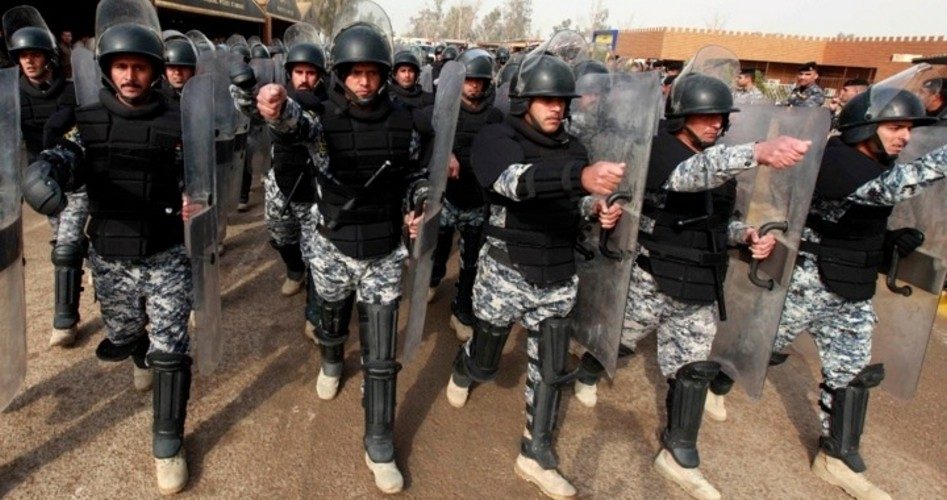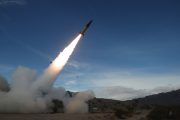
The U.S. government poured more than $200 million into an Iraqi police training program that was never authorized by local authorities, according to a new government audit. The Police Development Program (PDP) was blueprinted as a five-year, multibillion-dollar effort to prepare Iraqi security forces for when U.S. troops evacuated last December.
The audit, published July 30 by the special inspector general for Iraq reconstruction (SIGIR), uncovered that Baghdad officials never provided formal authorization for the program, and were “disinterested” in launching the initiative. Consequently, American taxpayers have been forced to relinquish $206 million, including $108 million for the construction of housing and training facilities at the Baghdad Police College Annex and $98 million for building the Basra Consulate training center. Additionally, the 41-page summary reported that the total number of advisors was to be slashed by almost 90 percent — from 350 to 36.
The State Department “decided to close the [Baghdad Police College Annex] facility, just months after the PDP started, due to security costs and program revisions,” the SIGIR disclosed in its report. Further, the Basra consulate “will not be used because the [Iraqi interior ministry] decided to terminate training at that location. This brings the total amount of de facto waste in the PDP — that is, funds not meaningfully used for the purpose of their appropriation — to about $206m.”
“A major lesson learned from Iraq is that host country buy-in to proposed programs is essential to the long-term success of relief and reconstruction activities,” the report noted, adding that the decision to advance the effort without written authorization was “costly” and irresponsible. “The PDP experience powerfully underscores that point.” One may think that this would be obvious to the government that spends our hard-earned tax dollars on these projects, but apparently it is not.
Acting Assistant Secretary of State Carol Perez asserted that the embassy would need more funding this year to continue Iraqi police training into next year. Moreover, Perez claimed in a July 26 letter that Iraq has still agreed to a streamlined version of the program “to ensure that our police assistance efforts meet mutual goals and objectives and to sustain senior-level Iraqi commitment to the program.”
However, the SIGIR report said the lack of a written commitment trumps those assurances, and quoted Principal Deputy Interior Minister Adnan al-Asadi as telling U.S. auditors that the training program is “useless.” Al-Asadi “also indicated that Iraqi police officers had expressed their opinion that the training received to date was not beneficial,” the report added.
The findings raise serious questions about the funding needs of the largest U.S. embassy in the world, as the White House primes its new spending proposal for 2013, which begins October 1. Despite billions of U.S. dollars doled out for training, the Iraqi police force remains largely vulnerable to enemy combatants. On Sunday, for instance, seven police officers were killed and nine were wounded in a shooting and bombing near a former al-Qaida garrison about 40 miles outside of Baghdad.
Without a written commitment, compliance with the police training program has been tense, as many local officials have been resistant to American aid. As a result, some Iraqi officers have been distancing themselves from U.S. trainers, and have even been ordered to skip the training sessions. Commenting on the predicament, the SIGIR cited “lukewarm relations between the Americans and Iraqis [that] has created some distance between them.”
Stephanie Sanok of the Center for Strategic and International Studies said the PDP was “doomed from the beginning,” having worked in Baghdad’s U.S. embassy from 2009 to 2010. “This was such an expensive program, and there was plenty of time to get the Iraqi government to help shape it in such a way that they could eventually take it over. But we never got that buy-in.”
Photo of Iraqi riot police in Baghdad: AP Images



